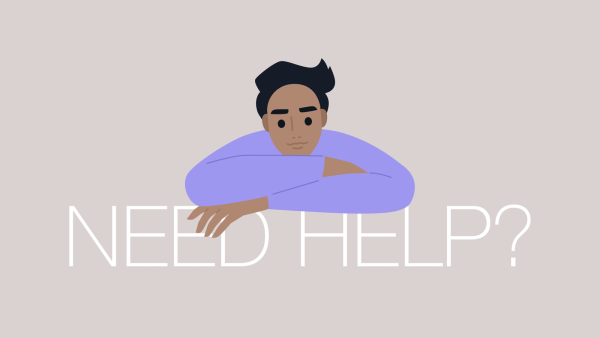Many of us have either struggled with their mental health first hand or know someone who has. And as people are becoming more and more aware about the importance of taking care of their mental health, the world is beginning to take louder and bigger steps in raising awareness.
This year FIFA, with the support of the World Health Organization (WHO) and Association of Southeast Nations (ASEAN), started the #ReachOut campaign to emphasize the importance of mental health and normalize the conversation.
FIFA and @ASEAN have joined forces to launch #ReachOut.
— FIFA.com (@FIFAcom) August 2, 2021
This campaign is designed to promote healthy lifestyles to help combat the symptoms of mental health conditions, and to encourage people to seek help when they need it.@WHO | #ReachOut
Leading FIFA legends also took part in the campaign in order to help diminish the stigma surrounding it. With the pressure that comes with competition and being under the spotlights, athletes are also prone to struggling with their mental health. Therefore, having some of the most well known players share their stories and personal struggles serves as a great reminder that no one is immune to any form of illness, whether physical or mental.
Teresa Enke, wife of late football legend, Robert Enke who died by suicide back in 2009, also joined the campaign to shed light on the fact that it can happen to anyone. Her efforts first started after she set up the Robert Enke Foundation in 2010 to speak up about depression and integrate mental health conversations into our lives. The reality of it is that regardless of who you are, you, just like the rest of us, can develop a mental illness.
“It’s a good moment to understand that, behind the footballer, behind the businessman, behind the worker, is a human being. And that human being will have the same issues any human being has.” - Roberto Martinez, Belgium Team Coach Leading FIFA’s #ReachOut Campaign
Mental illness and substance abuse affect around 970 million people worldwide, with anxiety and depression paralyzing 284M and 264M people, respectively. When looking at football players alone, it is reported that 23% have sleep disturbances, 38% have feelings of depression and anxiety, and 15% feel distressed. But that’s not where the problem ends, because even retired players can suffer from mental health issues.
In fact, 28% and 18% of retired players report sleep disturbances and feeling distressed, respectively. These numbers further increased with the pandemic hitting the world with full force. In a study conducted between March and April 2020, 22% of female players and 13% of male players reported depicting symptoms of depression.
When compared to the data gathered in December 2019 and January 2020, one can see a significant rise from the 11% of female players and 6% of men players who reported having some symptoms of depression. Mental illness can hit anyone, FIFPRO even says that 20-35% of players suffer from mental illness throughout their career.
If you take a step back and see everyone for who they really are - just humans like all of us, you will come to see that we are all the same. We all struggle and need help every once in a while. However, the problem with mental illness is that it can push people to self-isolate and not ask for help.
This can be either due to the stigma surrounding mental illness or the fact that they do not want to look “weak”. But if you really look at it, there is nothing weak about having a mental illness and asking for help is an important prerequisite to getting better.
“The only time people can get better is when they realise that they need help. You need someone to notice that you are struggling.” - Adriana Jones, Australian football player
Asking for help does not make you weak. Hearing this and reading it might not move you, but asking for help is not only okay but also necessary. #ReachOut, speak up and ask for help because you are not alone in this. None of us is alone. There are people out there who want to help and all you have to do is just let them.
The #ReachOut campaign is a great way to destigmatize the conversation and reach millions of people across the globe. Not only that, but the campaign also provides support and ways to help professionals deal with their mental illness.
Talking and reaching out can save a life, do not bite your tongue. Speak up and ask for help.








